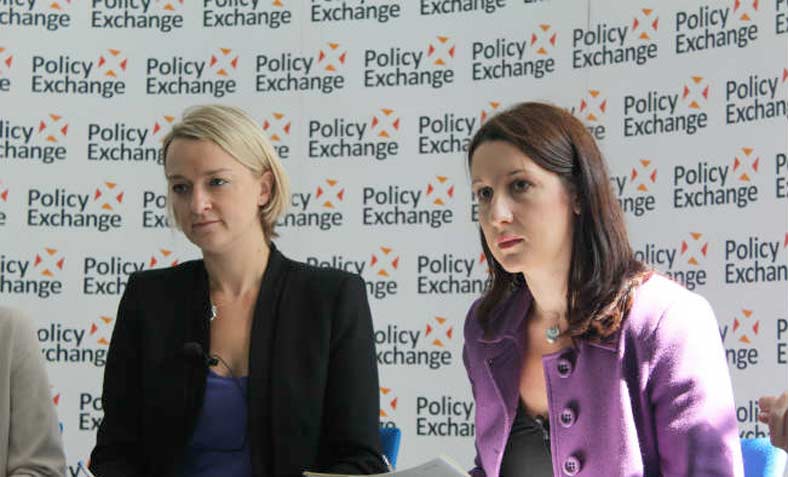 Kuenssberg at Policy Exchange in 2012. Photo: Policy Exchange/ Flickr
Kuenssberg at Policy Exchange in 2012. Photo: Policy Exchange/ Flickr
Political editor of BBC News wins contest after months of leading the media assault on Corbyn. Des Freedman takes a look at the context of this decision
The Press Gazette British Journalism Awards, which have just announced that the BBC’s political editor, Laura Kuenssberg, is their ‘journalist of the year’, is sponsored by Heineken. There must have been an awful lot of it splashing around when the judges were making their decision.
Apparently, the thing that swung it for her was her fantastic coverage of the EU referendum: “In a tumultuous year, she rose to the challenge and made the story of Brexit her own.”
This is quite an accolade given the fact that she is the leading voice of a broadcast system that treated the Brexit debate purely as an argument amongst different Tory factions in which Labour, women and issues beyond talk of immigration, business and the referendum itself were largely absent.
However, I do believe that Ms Kuenssberg does deserve an award given her unflinching loyalty to the project to diminish Jeremy Corbyn in the eyes of her viewers.
After all, she was the brains behind one of the scoops of the year when she coordinated the resignation from Corbyn’s cabinet of Stephen Doughty, shadow foreign affairs minister, live on TV, in order to maximize the embarrassment for Corbyn. In the words of the programme’s editor (in a blogpost that was then taken down), Laura “sealed the deal…Stephen Doughty would resign live in the studio.” Her account of Corbyn’s shadow cabinet reshuffle actually starts with claiming that ‘Corbyn is meant to be the boss’ and goes to describe it as a ‘pantomime’, alleging that Corbyn simply didn’t have the ‘clout’ to make the changes he wanted.
Kuenssberg was also heavily criticised for almost single-handedly trying to make last spring’s local elections into a referendum on Corbyn’s leadership as opposed to focusing on the record of the party actually in power. This kind of bias isn’t an accident or a one-off example of ‘bad journalism’ but is built into a media system that is intertwined with the interests that run the country.
This doesn’t mean that there’s a smoke-filled room somewhere where anti-Corbyn people get together. I think you just call it a routine editorial meeting. The point is many senior journalists (like her predecessor Nick Robinson, former chairman of the Oxford University Conservative Association) reflect the dominant strain that runs through their newsrooms – one based on the assumed benefits of neoliberalism and foreign intervention and the undesirability (or the sheer madness of the idea) of redistribution, nationalisation and people like Jeremy Corbyn who don’t share the same social circles or ideological commitments.
We need a wholly different media system: one that’s not afraid to challenge power because it’s not steeped in power in the first place. How do we do go about achieving this? Things change fastest when elites are divided and ordinary people start to organise themselves along different priorities. So if we want to see a different media, it means both telling our own stories but also mounting a sustained challenge to austerity and racism, to greedy train companies and big pharma, to environmental disaster and the marketisation of our NHS. It means posing an alternative to a social system that promotes neoliberal ideas in the first place.
Meanwhile, the last word should go to someone who knows the BBC inside out: Sir Michael Lyons, former chair of the BBC Trust who said this shortly after the local election coverage last May: “There have been some quite extraordinary attacks on the elected leader of the Labour party, quite extraordinary. I can understand why people are worried about whether some of the most senior editorial voices in the BBC have lost their impartiality on this.” I can’t imagine who he was talking about but they should definitely get an award of some sort.

